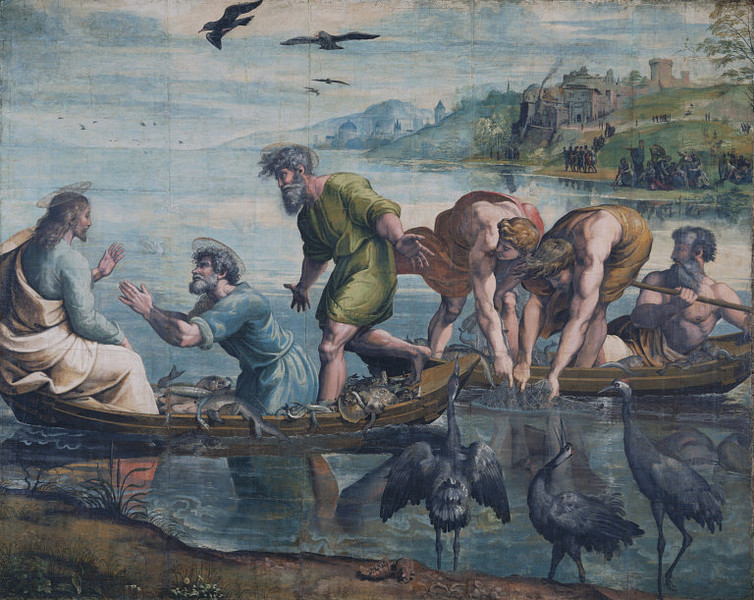.jpg) |
| Paul preaching in Athens, by Raphael [Public domain], via Wikimedia Commons |
Acts 17:17 (NASB): So he was reasoning in the synagogue with the Jews and the God-fearing Gentiles, and in the marketplace every day with those who happened to be present.
Acts 18:4 (NASB): And he was reasoning in the synagogue every Sabbath and trying to persuade Jews and Greeks.
Acts 19:8 (NASB): And he entered the synagogue and continued speaking out boldly for three months, reasoning and persuading them about the kingdom of God.
Acts 19:9 (NASB): But when some were becoming hardened and disobedient, speaking evil of the Way before the people, he withdrew from them and took away the disciples, reasoning daily in the school of Tyrannus.The word that is translated as “reasoning” in the NASB version of the Bible is used in the Bible to mean, according to Strong’s concordance on BlueLetterBible.org “to think different things with one’s self, mingle thought with thought, to ponder, revolve in mind, to converse, discourse with one, argue, discuss.”
I believe there is a great need in the church today for followers of Jesus who can use sound reasoning to explain why they believe what they believe. Evil people in this world use unsound arguments to defeat the truth of the Bible, and they deceive many young Christians with their non-sense. Then these young Christians begin to develop the notion that there is no intelligence in the Bible and the Church, and then they become atheists because the secular world has convinced them that knowledge is God. Therefore, in their thinking, there is no accountability for their immoral behavior, and the downward spiral unfolds. This is time and again the story of atheists that I speak with on campus, if I can ever get them to admit it. Additionally, they often experience a void of love and much hypocrisy in the church which is another huge issue, but not one I will write about now.
As believers, it is critically important that we are able to articulate well our beliefs, in a loving way, so that the world will know it is the truth or at least not be able to revile us without shame. This is why Peter exhorted (1 Peter 3, NASB):
14 But even if you should suffer for the sake of righteousness, you are blessed. And do not fear their intimidation, and do not be troubled, 15 but sanctify Christ as Lord in your hearts, always being ready to make a defense to everyone who asks you to give an account for the hope that is in you, yet with gentleness and reverence; 16 and keep a good conscience so that in the thing in which you are slandered, those who revile your good behavior in Christ will be put to shame.Did you notice the context? It is not necessarily evangelism (how it is often used), but responding to persecution. The world does not understand our beliefs. Often Christians will try to explain them and end up unnecessarily offending their accusers even further, because they don't do it with gentleness, reverence, and a clear conscience. They do it with emotion and opinion rather than sound reasoning.
There is nothing “un-spiritual” about thinking critically and being able to reason with unbelievers regarding this world and the things of eternity. If we can articulate the truth of the Bible, some of those who oppose us will come to see and understand the Light (like the result of Paul's preaching in Acts 17:22-34).
.jpg)

.png)





